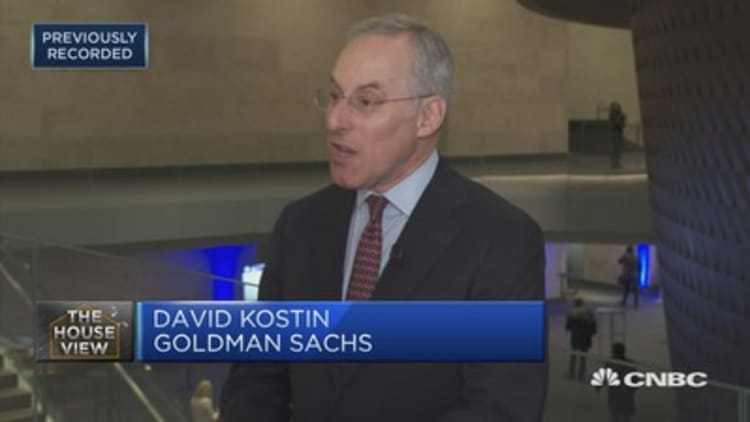Tax policy is the key risk to U.S. stock prices arising from the 2020 U.S. election, according to Goldman Sachs.
The Wall Street giant sees a durable profit cycle and continued economic expansion lifting the S&P 500 to 3,400 points by the end of 2020, but anticipates that policy uncertainty surrounding the election outcome will keep the index range-bound.
Goldman Sachs Chief U.S. Equity Strategist David Kostin told CNBC Wednesday that the best way to think about the U.S. equity market relative to the election is "united we fall, divided we rise."
Kostin hypothesized that should the Democratic Party unify control of the House, Senate and White House in November, the current corporate tax rate would likely be elevated back to levels seen prior to the Trump administration's sweeping tax cuts in 2017.
"What happened in the tax cut is the effective tax rate for U.S. companies went from 27% to 19%, so all of that incremental income inured to the equity investor. That is the reason for stocks being worth more today, it's just more cash flow is coming to the investor," Kostin told CNBC's Joumanna Bercetche at the Goldman Sachs Global Strategy Conference in London.
"The proposals of the major Democratic candidates are to increase corporate tax rates and to take that incremental tax revenue and redirect it towards other social purposes."

The leading Democratic candidates differ in their respective plans for corporate income tax, but all favor increasing rates to some degree.
While declining to pass judgment on the political merits of hiking corporate income tax, Kostin commented that increasing companies' tax rates from 19% to 27% means reduced cash flow and earnings to investors and therefore a fall in stock prices.
He suggested that at the end of 2020, the S&P 500 will trade off anticipated earnings in 2021. Earnings per share (EPS) are expected to rise by 6% in 2020 and 5% in 2021, according to Goldman's 2020 U.S. Equity Outlook report.
"So the current tax rate will tell you that in this current environment earnings will grow at another 5% in 2021, but if you reverse that tax rate, then earnings will decline by 7%," Kostin projected.

